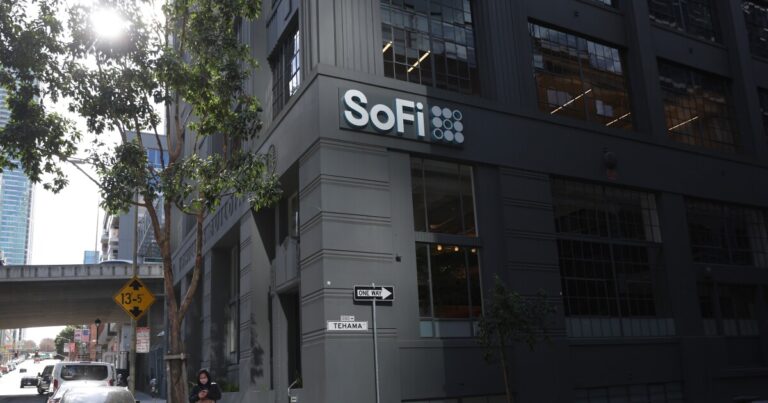President Donald Trump’s signature tax legislation is poised to benefit companies offering private student loans, including SoFi Technologies Inc., with the bill limiting how much students and their parents can borrow for college from the government.
Federal student loans have long been preferred because of their consistency in terms and conditions, which are established by the U.S. government. But college students without deep pockets, especially those in graduate programs, may have to turn to private lenders if the proposed legislation becomes law. SoFi is one of the best-known purveyors of student loans and could see a jump in demand, Wall Street analysts said.
“Given borrowing limits, many students, particularly those attending higher-cost grad programs or professional schools who profile as SoFi’s key target customer, may be unable to finance their education costs with just federal loans, forcing many to private lenders,” Tim Switzer, a vice president at Keefe, Bruyette & Woods who focuses on financial technology, said in an email.
In addition to driving demand for privately offered student loans, another tailwind from the tax legislation could come from increased refinancing activity. The bill proposes changes to repayment programs which may make them less appealing to borrowers and lead them to refinance their debt through private lenders.
“Refinancing demand should also accelerate with the resumption of debt collection and higher payments,” said Devin Ryan, head of fintech research at Citizens Financial Group Inc. “SoFi has terrific market share in student lending, and, with a number of lenders pulling back in recent years, we expect the firm to be a primary beneficiary of increasing demand.”
The current version of the measure — which the Senate passed on Tuesday and is now awaiting a House vote — imposes caps on the total amount of money students can borrow from the federal government. Graduate students will be able to borrow only $20,500 per year, with a $100,000 lifetime limit, while professional students, such as those studying law or medicine, can borrow $50,000 per year, with a $200,000 ceiling.
Currently, graduate students can borrow as much as $138,500 in total, while certain professional students have a $224,000 limit.
Parents borrowing on behalf of their kids also face changes under the legislation. They’ll be able to borrow a maximum of $65,000 per student after previously being able to borrow the cost of attendance minus any other financial assistance their child received.
While SoFi declined to comment on the “Big, Beautiful Bill,” the firm has already said it would be ready should federal policy change. Chief Executive Officer Anthony Noto said on an April earnings call that if the U.S. government decided to limit federal student lending in some capacity, the firm would “absolutely capture that opportunity.”
SoFi got its start refinancing government-issued student loans at better rates, but has since refocused on its fee-based businesses, which have less exposure to fluctuating interest rates. That doesn’t mean the company has abandoned lending, and KBW’s Switzer said he believes SoFi will seize on student-loan demand if that’s what customers seek.
“It’s an important product in terms of our mission, being there for all the major financial decisions in our members’ lives and the days in between,” Noto said in April.


